Events
PAST EVENTS
FROM MAY 3 THROUGH JULY 13, 2019
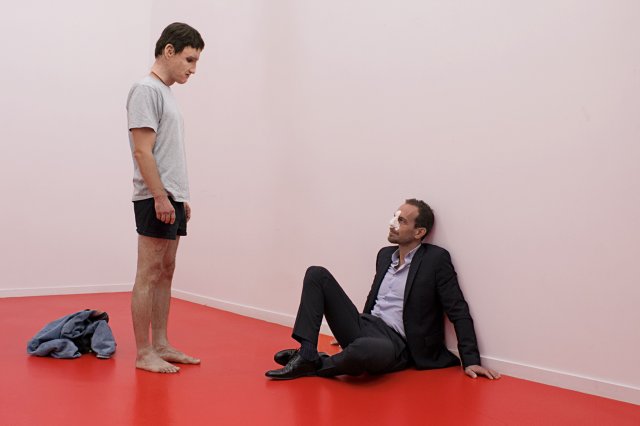
Curated by Mélanie Bouteloup & Lucas Morin
In the Spring of 2019, Bétonsalon - Center for Art and Research will host a solo exhibition by artist Jean-Charles de Quillacq. The exhibition will include newly commissioned performances and sculptures, as well as existing works.
Born in France in 1979, de Quillacq lives and works in Zürich. He graduated from the Lyon National School of Fine Arts and the Weißensee Kunsthochschule in Berlin. He creates conceptual and fetishistic sculptures, which he incorporates within exhibition protocols that implicate staff and visitors. He turns them into auxiliaries, even accomplices, of his work, accepting the loss of control and potential deviations that those invitations might lead to.
THURSDAY, MAY 9th, 2019 from 7p.m30 to 9p.m30
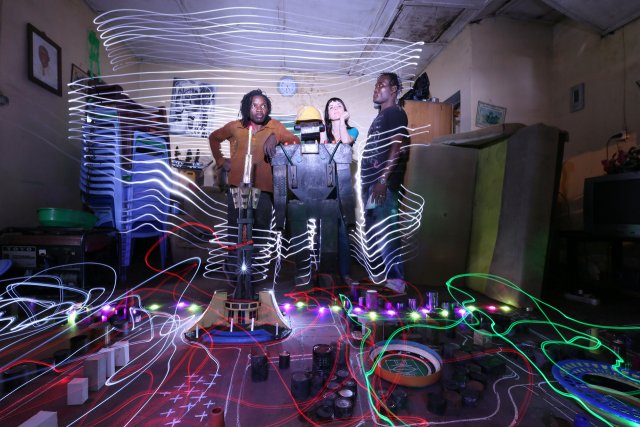 photo credit: Untitled (portrait of Bienvenu Nanga, Mega Mingiedi and Eléonore Hellio, Kinshasa 2013) © Sean Hart
photo credit: Untitled (portrait of Bienvenu Nanga, Mega Mingiedi and Eléonore Hellio, Kinshasa 2013) © Sean Hart
Seminar: Arts in Africa and in its diasporas: practices, knowledges, mobilities
This seminar seeks to offer reflections on the driving forces of forms, practices and artistic knowledge of the conception and the circulation of structures, movements, ideologies and political imaginaries on the african continent and in its diaspora. In this framework, our researches will focus on the visual and performative arts, in a broad sense (danse, theatre, fine arts, photograpy, cinema, music, litterature, digital arts...) and will follow an historian, critical and transdisciplinary approach.
Anthropology, visual culture and materiel history, curatorial studies history, art history, colonial, postcolonial, decolonial and diasporic studies, as well as political sciences... will meet and question each other . Each session will be build around a presentation by invited speakers researchers or/and designers/practitioners, wether they are artists, cultural actors or activists. Capturing diversity and a large range of viewpoints, presented works and approaches will have in common to take account that works (on) intersections between art(s) and politic(s ) imply to start from a bedrock where reflexting and theorising are required.
—
2018-2019: Future Arts Practices in the African World and its Diasporas
Future, or better, futures. Futures of cities, of ecologies, of constructions of genders; futures of technics and sciences; of the violence - political, economical, social ; of hope; the mere notions of future... Thinking, speaking, give substance to these futures and to others, connected, from Africa and its diasporas: these are crucial tasks that - through their practices and reflexions - artists, cinematographers, performers writers, philosophers, reserchers, curators, and cultural activists who will present their work during the seminar will try to target. Committed, rebellious, even radical, the proposals that they develop undermine preconceived ideas and doxas.
ORGANISERS OF THE SEMINAR :
Anne Doquet, Christine Douxami, Sarah Fila-Bakabadio, Eric Jolly,
Dominique Malaquais.
SPEAKERS : Katja Gentric, Annael Le Poullennec
++++
Katja Gentric & Annael Le Poullennec
«...... when suddenly the future came to interrupt the foreseen course of events : shifts and coincidences in today’s south african art and cinema.»
"Why speak of art to talk about the future?
To live in the present is, in itself, to live on the verge of the instant when everything capsizes into the future. All the more so in a country with a conflictual and violent past, like South Africa for example, where the past re-emerges in unexpected and strangely deformed ways. Such a society is however obliged to take this past into consideration in order to be able to face the future. Past and future appear in the form of images and slippages explaining the present, and vice-versa. Under the sign of this paradoxical simultaneity and these reciprocal temporalities, the present is a point of intersection, a moment when coincidences and collisions of all sorts may happen, between multiple pasts and futures, expectations and hopes – pending hopes? – belated anticipations? Maybe it is the constant deferral of the dream promised at the end of apartheid that brings about this belatedness, this lag, a certain nostalgia of a radiant future continually rescheduled, where the solution (the revolution?) is still to come. In reciprocal simultaneity the south african context is one of acute awareness of a radical about turn, bringing with it redefinition, re-narration on a national level, distancing propaganda, because such a capsizing moment has already happened, quite recently at that. This mode of consciousness brings with it an acute sense of the fictional, of potentialities, i.e. the regenerative power inherent in narration, in re-imagination.
Incidentally, fiction is integral part of any artistic practice. In the arts temporal shifts can be personified by the one who is not in his place or out of sync: the alien, the colon, the expat, the migrant, the dreamer, the distracted, the time traveller. Singling out a handful of examples from contemporary art and cinema, we will draw attention to temporal gaps and shifts, coincidences and capsizing occurrences. Starting form the dictionary of multiple temporalities Not no Place, to the film District 9 (Neill Blomkamp), touching on the interventions of the Center for Historical Reenactments, we keep a lookout for the moments when the unexpected comes to interrupt the foreseen course of events, the misunderstandings – and the preconceived ideas. Sometimes these may startle us into surprised laughter."
—
Annael Le Poullennec is an associate researcher at Institut des mondes africains (EHESS-EPHE-CNRS-IRD-Paris 1 Sorbonne-Aix Marseille Universités). After studying English literature, linguistics and history at Ecole normale supérieure (Cachan), she passed her higher education teaching certificate (Agrégation) in 2007. She obtained her PhD in English studies (with a specialization in South African cultural studies) in 2013; her dissertation examined the representations of “post-apartheid space” in South African feature-length fiction films of the 2000s. Between 2007 and 2014, she taught English, British and American history as well as visual studies in her alma mater as well as Université Paris-Diderot and Université de Cergy-Pontoise, before taking on responsabilities as project manager for research dissemination at Ecole normale supérieure and Université PSL. Her current research focuses on issues of space, identity and memory in the post-apartheid and post-Marikana contexts, particularly as regards cinematic representations.
—
Artist and art historian, Katja Gentric has completed her studies in South Africa and in France. She holds a D.N.S.E.P (fine arts) from ENSA Dijon and a PhD from the Université de Bourgogne. She is post-doctoral fellow in the department “Art History and Image Studies” at the University of the Free State, South Africa and associate researcher at the Centre Georges Chevrier, Dijon (UMR 7366 - CNRS uB).
SATURDAY, APRIL 13th, 2019, from 15p.m to 18p.m
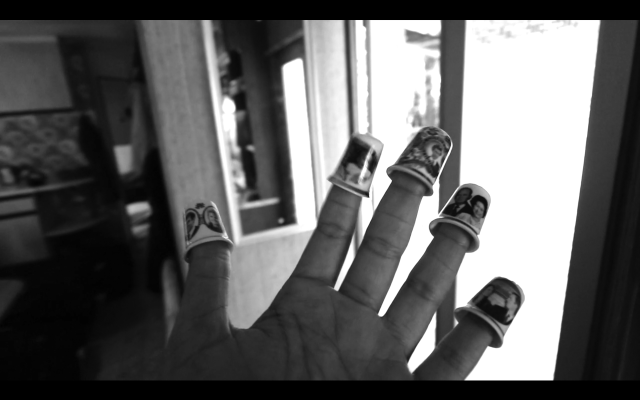 Georgia Lucas-Going, still from England, 2018, video & royal family thimbles pre-meghan Markle, 2’54, courtesy of the artist.
Georgia Lucas-Going, still from England, 2018, video & royal family thimbles pre-meghan Markle, 2’54, courtesy of the artist.
The Inheritance: visual talk of Elizabeth Povinelli followed by "A CURATOR ONCE SHOUTED AT ME FOR GIVING HIM FLOWERS" a performance of Georgia Lucas-Going
Visual talk: "The Inheritance", Elizabeth Povinelli
“This visual talk probes the temporality of inheritance by taking the audience through a visual history of my paternal family’s movement from their ancestral village in Austrian-Hungarian Alps to the deep American South of the 1960s and 70s. I ask what are the inheritances of families when what is passed down is passed through a history and violent displacement but into ongoing forms of settler dispossession and racial/racist oppression. Where is blood, soil, and identity across various modes of belonging to place and being dispossessed of place.”
—
Elizabeth Povinelli is the Franz Boas Professor of Anthropology and Gender Studies at Columbia University. Her writing has focused on developing a critical theory of late liberalism that would support an anthropology of the otherwise, informed primarily by settler colonial theory, pragmatism and critical theory. This potential theory of the otherwise has unfolded primarily from within a sustained relationship with her Indigenous Karrabing colleagues in north Australia and across five books, numerous essays, and six films with the Karrabing Film Collective. In her most recent book, Geontologies: A Requiem to Late Liberalism, Povineli finds Foucauldian biopolitics unable to adequately reveal contemporary mechanisms of power and governance and describes a mode of power she calls geontopower, which operates through the regulation of the distinction between Life and Nonlife and the figures of the Desert, the Animist, and the Virus. Geontologies examines this formation of power from the perspective of Indigenous Australian maneuvers against the settler state and was the 2017 recipient of the Lionel Trilling Book Award. Karrabing films have shown internationally including in the Berlinale Forum Expanded, Sydney Biennale; MIFF, the Tate Modern, documenta-14, and the Contour Biennale.
—
Performance: "A CURATOR ONCE SHOUTED AT ME FOR GIVING HIM FLOWERS", Georgia Lucas-Going
Georgia Lucas-Going stages herself in her own videos where she combines performance and work on the visual image. As she leans on simple schemes, she deals with personal and family histories based on shared stories. The artist and performer handles derision like a combative sport. In her video Think Brother Think (2016), she takes on ignorance on Black culture in the so-said multicultural British society with provocative humour. Despite their apparent lightness, her videos don’t cease deeply questioning our relation with History and power, as in Who Ever Heard of a Lord That Wasn’t a Fool (2017).
—
Georgia Lucas-Going (b. 1988 Luton, UK) is currently Artist-in-residence at the Rijksakademie van beeldende kunsten (Amsterdam, NL). She graduated from UCL’s Slade School of Arts in London (MFA in Fine Art). She has also been recently selected for the Deptford X 2018 program and received the Berenice Goodwin Prize for Performance. Lucas-Going was Artist-in-residence at the Alexander McQueen studios in London and Wysing Art Centre (Cambridge, UK) with the collective ‘FORMERLY CALLED’ and has exhibited notably at the ICA (London, UK) and Tate Modern (London, UK) as well as internationally.
THURSDAY, APRIL 11th, from 7p.m30 to 9p.m30
 photo credit: Untitled (portrait of Bienvenu Nanga, Mega Mingiedi and Eléonore Hellio, Kinshasa 2013) © Sean Hart
photo credit: Untitled (portrait of Bienvenu Nanga, Mega Mingiedi and Eléonore Hellio, Kinshasa 2013) © Sean Hart
Seminar: Arts in Africa and in its diasporas: practices, knowledges, mobilities
This seminar seeks to offer reflections on the driving forces of forms, practices and artistic knowledge of the conception and the circulation of structures, movements, ideologies and political imaginaries on the african continent and in its diaspora. In this framework, our researches will focus on the visual and performative arts, in a broad sense (danse, theatre, fine arts, photograpy, cinema, music, litterature, digital arts...) and will follow an historian, critical and transdisciplinary approach.
Anthropology, visual culture and materiel history, curatorial studies history, art history, colonial, postcolonial, decolonial and diasporic studies, as well as political sciences... will meet and question each other . Each session will be build around a presentation by invited speakers researchers or/and designers/practitioners, wether they are artists, cultural actors or activists. Capturing diversity and a large range of viewpoints, presented works and approaches will have in common to take account that works (on) intersections between art(s) and politic(s ) imply to start from a bedrock where reflexting and theorising are required.
—
2018-2019: Future Arts Practices in the African World and its Diasporas
Future, or better, futures. Futures of cities, of ecologies, of constructions of genders; futures of technics and sciences; of the violence - political, economical, social ; of hope; the mere notions of future... Thinking, speaking, give substance to these futures and to others, connected, from Africa and its diasporas: these are crucial tasks that - through their practices and reflexions - artists, cinematographers, performers writers, philosophers, reserchers, curators, and cultural activists who will present their work during the seminar will try to target. Committed, rebellious, even radical, the proposals that they develop undermine preconceived ideas and doxas.
ORGANISERS OF THE SEMINAR :
Anne Doquet, Christine Douxami, Sarah Fila-Bakabadio, Eric Jolly,
Dominique Malaquais.
SPEAKERS :
Eva Barois de Caevel, Katja Gentric, Annael Le Poullennec
++++
SESSIONS
Thursday, 11th of APRIL, 2019 from 7p.m30 to 9p.m30
«Here I have everything I need» with Eva Barois de Caevel
Thursday, 09th of MAY, 2019 from 7p.m30 to 9p.m30
«...... when suddenly the future came to interrupt the foreseen course of events : shifts and coincidences in today’s south african art and cinema.» with Katja Gentric & Annael Le Poullennec
++++
SESSION 1: THURSDAY, 11th of APRIL, 2019
7p.m30 to 9p.m30
Eva Barois de Caevel
«Here I have everything I need»
"I work from — and beyond — the “African” continent. With artists, with students; with institutions. Mostly as curator. I will come to relate stories, short narrations, appearing as many thumbnail images likely to conjure up some aspect of the future(s) of Africa(s) and of their diasporas. My stories are about places, people and art; but they also speak of epistemology, of the notion of the universal, of what is referred to as “barbarian”, of aesthetics and representations, of legitimacy, of the idea of progress, of the sexual orientations of “others”, of violence and predation, of the sense of accomplishment and self-esteem, of the multiplicity of narratives, of displacement, of fear and of love."
—
Eva Barois De Caevel (1989, France) is an independent curator, writer and editor. She works in the research areas feminism, post-colonial studies, body and sexuality, critical re-readings of occident-centrist history of art and renewal of writing and of critical speech. In approaching her work, she is dedicated to “always keeping in mind the power-relations between continents, countries, personalities”, she has pledged to attempt to transform them as soon as the slightest position of power becomes apparent. Eva Barois De Caevel graduated from Paris Sorbonne Paris IV in Art history, she is assistant curator for RAW Material Company and coordinator of RAW Academy (Senegal); editor and consultant for the Institute for Human Activities (Congo, Holland, Belgium); invited curator for LagosPhoto Festival (October-November 2018, Nigeria). Eva is a founding member of the international collective of curators Cartel de Kunst, created in 2012, based in Paris. She was the winner of ICI Independent Vision Curatorial Award 2014 and has published a great number of texts in exhibition catalogues and specialised journals (IAM, AFRIKADAA, Offshore, Something We Africans Got). She was the curator of the exhibitions L’élargissement des fantasmes (March - April 2017, Maëlle Galerie, Paris) and Every Mask I Ever Loved (September - January 2018, ifa Galerie, Berlin). In her capacity as curator and researcher she has presented her research in a great number of international conferences and symposiums, sometimes performing her own texts. Amongst others she has presented her work at Musée des civilisations noires in Dakar, at Friche la Belle de Mai in Marseille, at l’Institut National d’Histoire de l’Art in Paris, at La Colonie in Paris, at the School of Arts in Ghent, at Creative Time Summit 2016 in Washington, at the Akademie der Künste der Welt in Köln, at Bétonsalon in Paris, at Centre Pompidou in Paris, at Sint Lucas University of Art and Design in Antwerp, at the FRAC Basse-Normandie in Caen, at l’Université Paris Diderot, at Villa Médicis in Rome, at the Fondation d’entreprise Galeries Lafayette in Paris, and WIELS in Brussels.
FROM MARCH 26th TO MARCH, 30th, 2019
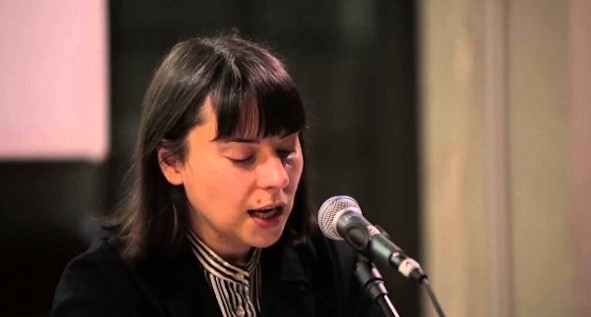
Workshop Shapes of the Radical
As part of Position latérale de sécurité (Lateral Recovery Position), this one-week workshop will gather a group of participants with a variety of backgrounds over daily sessions. The program will include analyses and discussions about the curatorial process of the exhibition, conceptual constellations, and individual artworks, in addition to close readings of the discursive and editorial programs. The workshop will focus on verbal exchanges and body practices in order to elaborate a shared reflection on some of the visible and invisible affects at work in the exhibition. The program will include a series of daily workshops led by writer and theorist Ana Teixeira Pinto about the matter of cryptofascism, and conversations with the artists and curators of the exhibition.
The workshop Shapes of the Radical is centered on the exhibition itself end encourages a dynamic exchange with the staff of Bétonsalon — Center for Art and Research, curators, contributors, and participants. The program takes as its primary subject matter the parameters, resources, and tools offered by the exhibition Position latérale de sécurité (Lateral Recovery Position) itself and examines the exhibition as a complex network of material, political, and aesthetic contingencies. It focuses on it visible and invisible alliances and relations, using the exhibition as a site of encounter and study.
REGISTRATION
Registration is required at: publics@betonsalon.net.
Please send a short email introducing yourself and your reasons for participating, with the subject "Registration: Shapes of the Radical".
Registration is possible until March 15th, 2019 at 11 a.m.
Participants will receive the detailed workshop program after registration.
GUEST CONTRIBUTORS
The workshop Shapes of the Radical acts as a close reading of the exhibition, with unique interventions from selected contributors. Guests include: Ana Teixeira Pinto, Alice Diop, Adrian Mabileau Ebrahimi Tajadod, and Hamid Shams.
PUBLIC SESSIONS - No registration required
Thursday, 28.3.2019
6 p.m. to 8 p.m.
Screening of Vers la tendresse, by Alice Diop
Alice Diop in conversation with Guslagie Malanda
Saturday, March 30th 2019
From 3 p.m. to 6 p.m.
Final discussion with the contributors & Ana Teixeira Pinto
All public events are held in English and French and are free of charge.
++++
Ana Teixeira Pinto is a writer and cultural theorist based in Berlin. She is a lecturer at the DAI (Dutch Art Institute) and a research fellow at Leuphana University, Lüneburg (Germany). Her writings have appeared in publications such as Frieze, Afterall, Springerin, Camera Austria, e-flux journal, art-agenda, Mousse, Domus, Inaesthetics, Manifesta Journal, and Texte zur Kunst. She is the editor of The Reluctant Narrator (Sternberg Press, 2014) and, together with Eric de Bruyn and Sven Lütticken of a forthcoming book series on counter histories, to be published by Sternberg Press.
Alice Diop, born in 1979, from Senegalese parents, is a french documentary filmmaker, who makes films about contemporary French society. After sociology studies, she embarked into producing mostly documentary films. Her most notable productions include La permanence (2016), a movie about the life of migrants in France, and La Mort de Danton (2011) which won the Prix des Bibliothèques au Cinéma du Réel and the Grand Prix du 7ème Festival du film d’éducation d’Évreux as well as the Étoile de la Scam in 2012. Diop movies received numerous awards. Her film Vers La tendresse (Towards Tenderness) won the best short film award at the French César Awards in 2017. When receiving her prize she dedicated the film to victims of police violence.
FRIDAY, MARCH 22th, 2019, from 12.30 a.m to 2 p.m
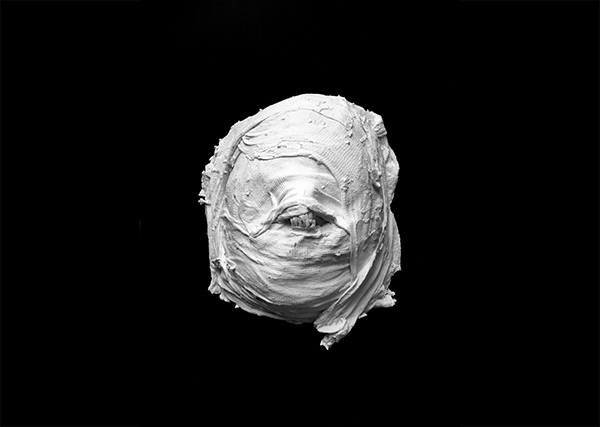
Screening: Animacies
Screening of the video produced as part of the workshop program led, at the Paris Diderot University and the Poissy prison, by artist Julie Ramage and archaeologist Olivier Royer-Perez (Inrap).
What can archaeology teach us about life in prison? How does this science of traces, remains and archives intersect with notions of proof, identity and testimony? The original project, focusing on aging bodies, was soon subverted by the working group formed at the Poissy prison, which chose to study daily strategies of “survival”. These discussions and experimentations, the scientific analysis of techniques and artifacts and the exploration of archaeological conservation and restoration processes arose broader questions on wounds, healing, care and the integrity of the incarcerated body. It also interrogated everyday gestures of micro-resistance, conflicts of power and communication.
Collective creation: ANIMACIES
Directed by Julie Ramage
++++
This workshop was organized with the Students in Confinement Section of Paris Diderot University and the Ateliers Lettres pour l’oral et l’écrit (ALOÉ) of the Education and Research Unit in Literature, Art & Cinema. It benefited from the support of CERILAC at Paris Diderot University, the Yvelines Integration and Probation Penitentiary Service, the Poissy prison, Bétonsalon – Center for Art and Research, the Daniel and Nina Carasso Foundation, and Région Ile-de-France, as a grantee of the FoRTE fund. On this occasion, a program of interventions and research was developed at the Poissy prison and the Paris Diderot University, in partnership with Inrap – Centre Île-de-France. The archaeologist Olivier Royer-Perez participated in the work sessions from September 2017 to April 2018.
WEDNESDAY, JANUARY 30, 2019, from 6 to 8 p.m.
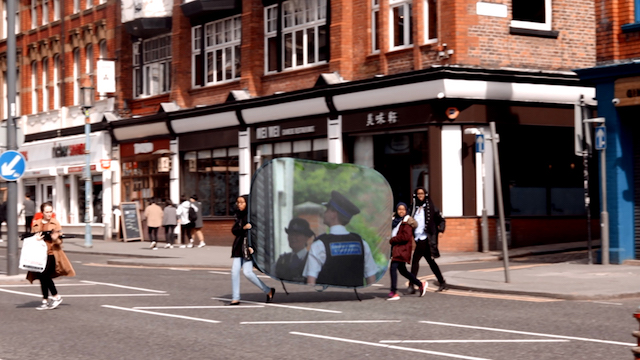
Artist talk
For this first artist talk in the exhibition space, we welcomed two members of the Liverpool Black Women Filmmakers artist collective, as well as artist Rehana Zaman. The discussion started with a screening of A Tribute to Black Women (They Don’t Get A Chance), by Ann Carney & Barbara Phillips (The Black Women’s Media Project, WITCH), 1986, UK, 20 min. This seminal work from the 1980s feminist video scene, shot in Liverpool, was an integral part of the filmmaking process.
The artists and the exhibitions curators Guslagie Malanda and Lucas Morin discussed the process of making this collaborative work in Liverpool, as well as the political implications of the video. The talk gave an opportunity to discuss the perception of minorities in both France and the United Kingdom, as well as matters of representation within the art scene and more broadly in cultural references.
We would like to thank Cinenova Distribution for their support in the screening of A Tribute to Black Women (They Don’t Get a Chance).
FRIDAY, FEBRUARY 8, 2019, from 7 to 8 p.m.
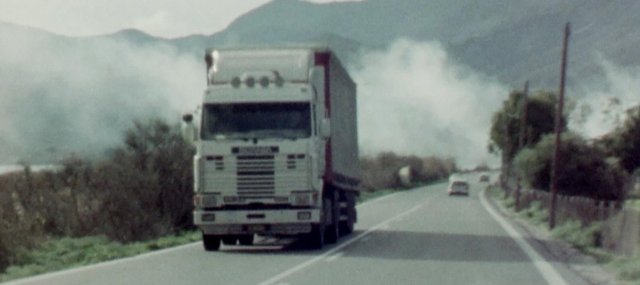
Le Petit Tour (A Short Ride) #2 Greece
Bétonsalon – Center for Art and Research hosts Le Petit Tour (A Short Ride): Europe, landscape or territory? for a performed presentation of the publication by its members and authors. Le Petit Tour (A Short Ride) connects research and investigation, bringing together students, academics, artists, philosophers, historians… working on the question of the territory they operate on, namely: Europe.
Find out more
Share